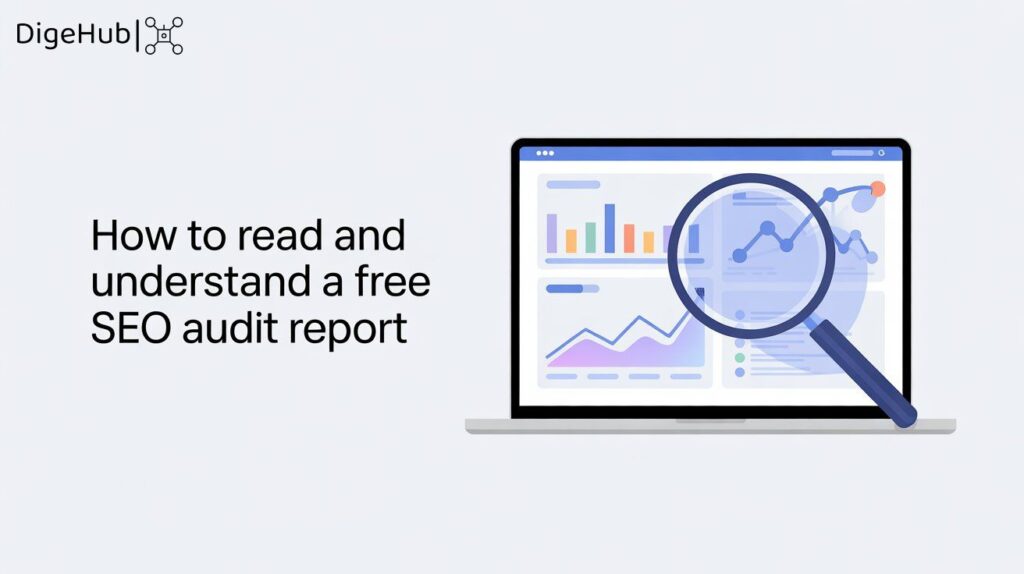On-Page & Technical SEO Analysis Tools You Can Use for Free
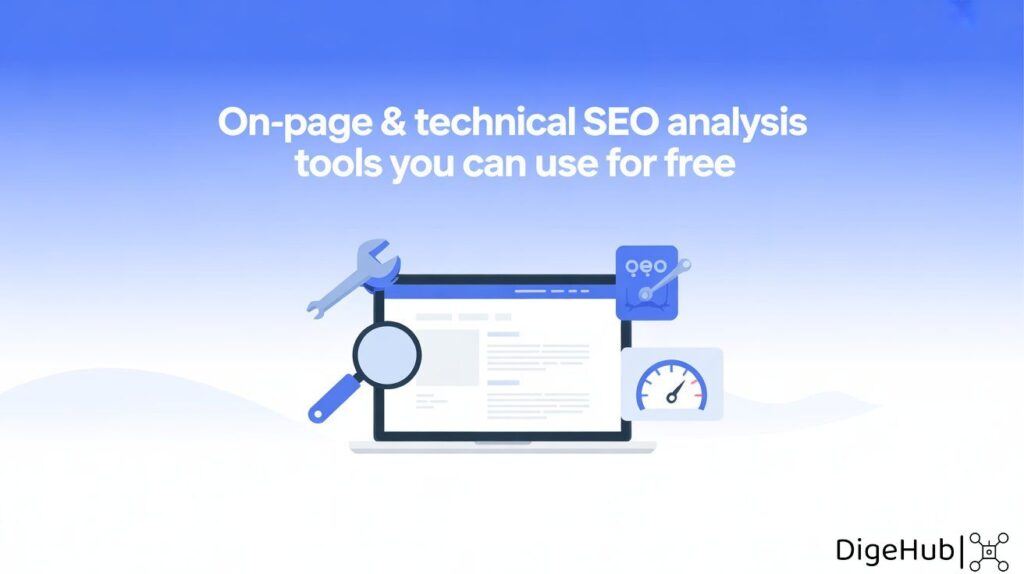
If you’ve ever wondered why your site ranks lower even after creating good content, here’s the deal SEO isn’t just about writing. It’s about how your website performs behind the scenes. That’s where on-page and technical SEO analysis tools come in handy.
In 2025, search engines are smarter than ever. They don’t just read your text; they check your page speed, structure, and how user friendly your site is. So, understanding both on page and technical SEO is no longer optional — it’s survival.
Whether you’re managing a blog, eCommerce store, or business website, you can easily run a free SEO analysis of your website using tools available online. And no, you don’t need to be an expert to do it.
As a prerequisite: Read our previous blog on How to Read and Understand a Free SEO Audit Report (Complete Guide 2026)
What Makes On-Page & Technical SEO Crucial in 2025
Let’s be honest — Google keeps changing the game. If your website isn’t optimized from both content and technical sides, it’s hard to survive the competition.
On-page SEO helps search engines understand what your content is about. Technical SEO ensures that your site can actually be crawled, loaded fast, and indexed correctly.
A perfect combo of both makes your site fast, user friendly, and SEO ready.
Example: Even the best article won’t rank if your site takes 5 seconds to load or your meta tags are missing.
If you’re new to SEO or need professional help, you can explore Digehub’s blogs for complete optimization.
Difference Between On-Page and Technical SEO
Many people confuse on page and technical SEO, but they work on different layers of your website.
| SEO Type | Focus Area | What It Improves |
|---|---|---|
| On-Page SEO | Content, keywords, headings, internal links | Relevance & user engagement |
| Technical SEO | Site speed, mobile-friendliness, crawlability | Site health & indexing |
In short, on-page SEO is about what’s visible to users, while technical SEO is what’s under the hood — helping your site communicate better with search engines.
Top Free On-Page SEO Analysis Tools
Let’s start with tools that focus on content, structure, and page-level elements.
1. Rank Math SEO Analyzer

Perfect for WordPress users, Rank Math offers a built-in free SEO analysis system that checks keyword usage, title tags, meta descriptions, and overall content structure. It gives every page an SEO score out of 100, making optimization simple even for beginners. You also get recommendations to fix missing alt text, improve readability, and enhance keyword placement. For WordPress websites, it’s one of the most powerful free on-page SEO tools available.
2. Seobility
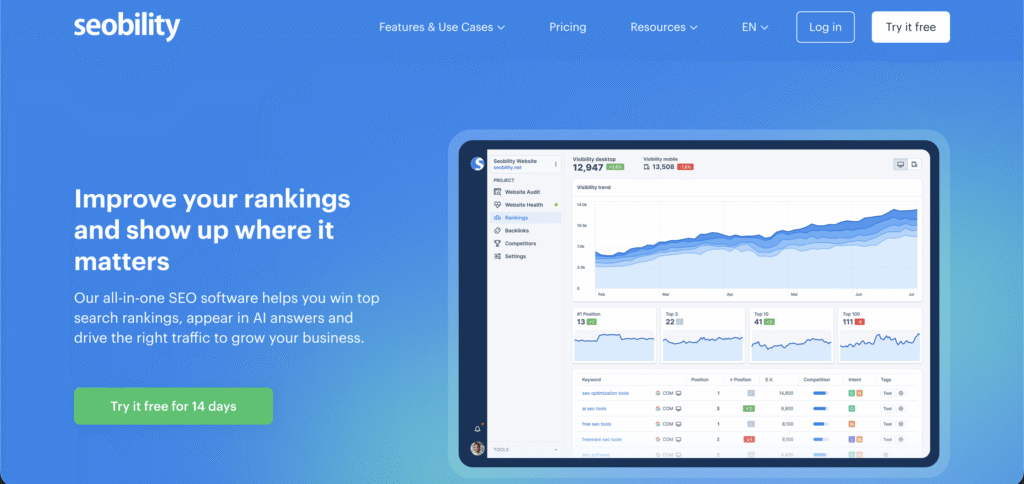
Seobility provides a complete free website SEO analysis that scans your pages for on-page issues like broken links, missing alt attributes, title tag duplicates, and structural errors. It generates an organized SEO report that’s easy to understand, even for beginners. With daily checks and clear improvement suggestions, Seobility is perfect for anyone who wants to monitor their site health and fix common SEO issues without paying for premium tools.
3. SEO Minion
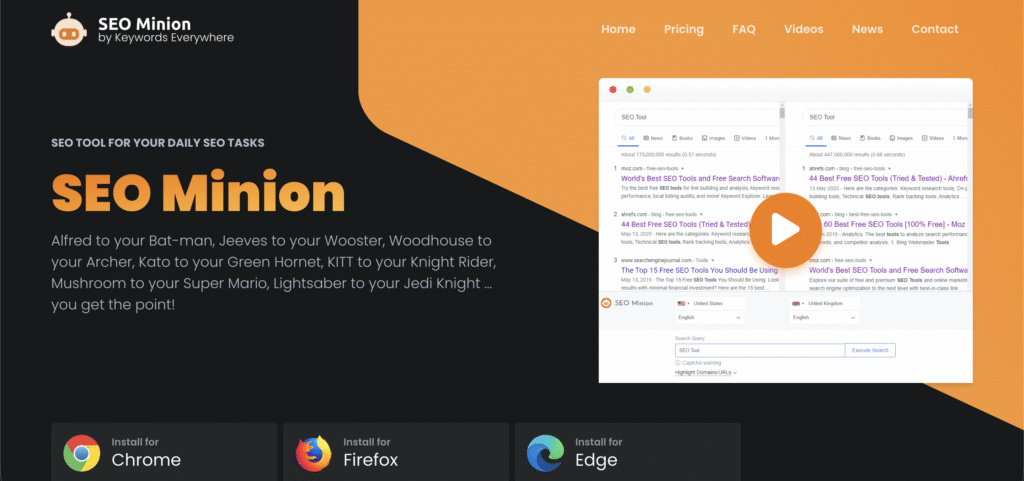
SEO Minion is a powerful browser extension that works like a mini SEO expert on your screen. It analyzes headings, metadata, internal and external links, and even highlights broken links instantly. The tool also helps you preview SERP snippets, check on-page SEO elements, and review hreflang tags. Since everything runs directly in your browser, it’s extremely convenient for quick on-page audits and real-time SEO checks.
4. Yoast SEO Analyzer
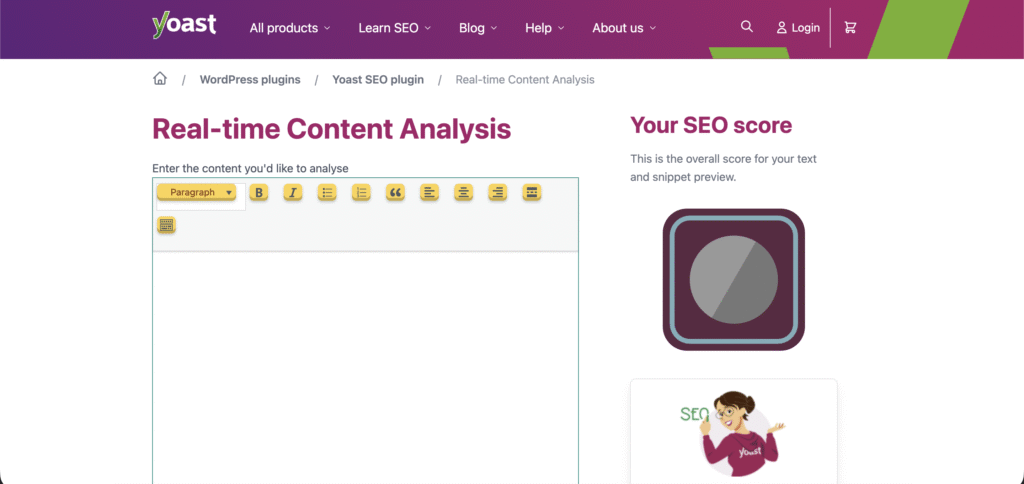
Yoast goes beyond writing support. Its SEO analyzer helps you control keyword density, readability, metadata accuracy, and internal linking structure. It highlights weak areas in your content and provides actionable suggestions to improve clarity and SEO relevance. For WordPress users, Yoast is a reliable free tool to maintain strong on-page SEO and ensure that every post follows SEO best practices.
5. Website Grader by HubSpot
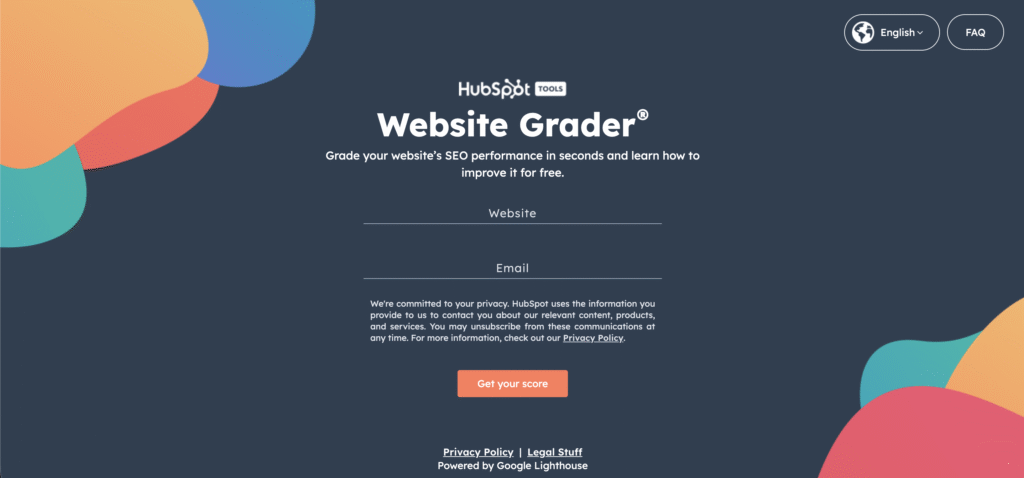
HubSpot’s Website Grader is an easy-to-use SEO scanning tool that evaluates your website based on SEO friendliness, performance, security, and mobile optimization. It delivers a simple score along with suggestions to improve speed, structure, and user experience. The tool is ideal for non-technical users who want a quick and clear overview of their website health without diving into complicated metrics.
Top Free Technical SEO Tools
Now let’s look at tools that dig deeper into performance, crawling, and backend elements.
1. Google PageSpeed Insights
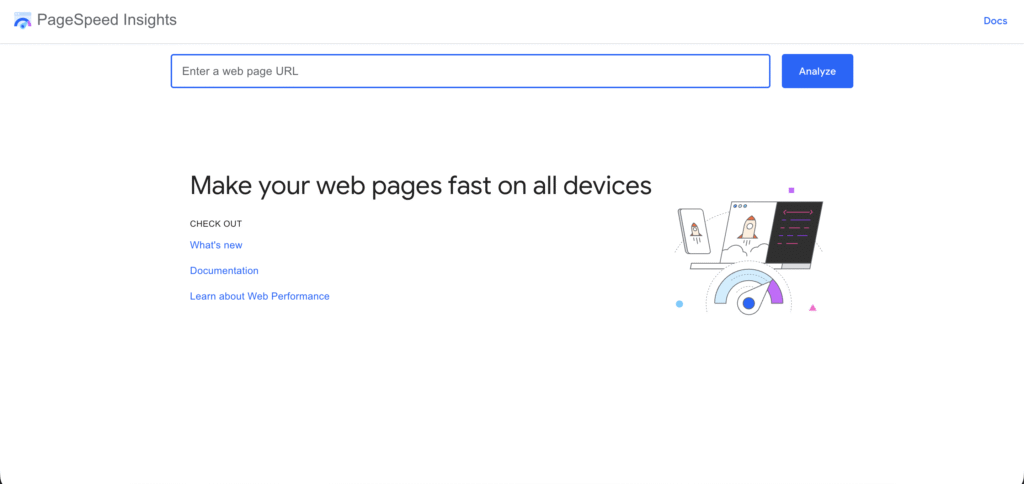
Google PageSpeed Insights is essential for measuring Core Web Vitals, including page load speed, visual stability, and interaction delays. It provides separate mobile and desktop performance scores along with actionable fixes. Since these metrics directly impact rankings, this free tool is a must for every website owner who wants to improve technical SEO and user experience.
2. Screaming Frog (Free Version)
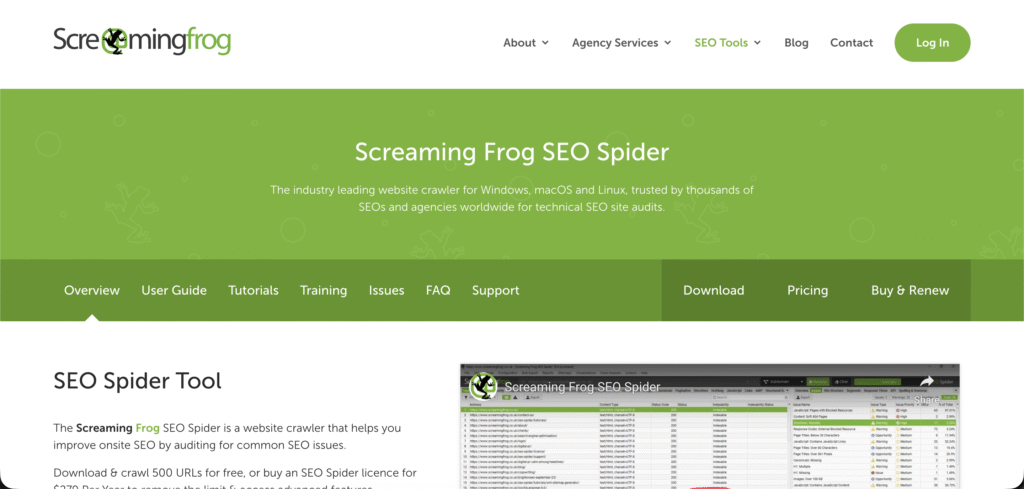
Screaming Frog is one of the most respected tools in technical SEO. The free version crawls up to 500 URLs and identifies broken links, redirect chains, missing titles, duplicate content, and more. It gives you a deep technical SEO audit report that professionals rely on. If your site has structural or crawling issues, Screaming Frog is the fastest way to find them.
3. GTMetrix
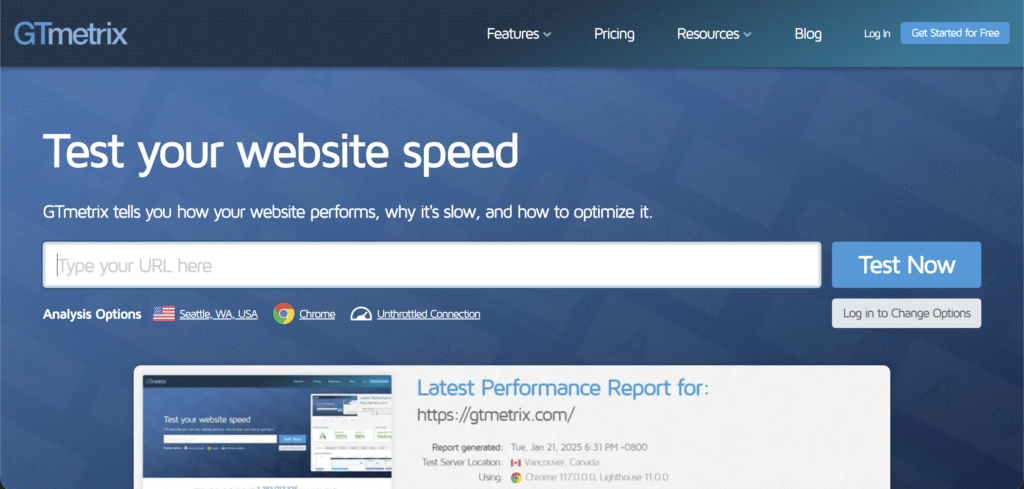
GTMetrix provides a full technical SEO and performance audit with detailed insights into speed, page size, unused scripts, layout shifts, and loading issues. It offers practical recommendations that help you optimize images, reduce scripts, and improve Core Web Vitals. If your pages load slowly, GTMetrix is one of the best free tools to identify what’s causing the delay.
4. Ahrefs Webmaster Tools

Ahrefs Webmaster Tools is a free and simplified version of Ahrefs that provides powerful technical insights. It scans your site for crawl errors, slow pages, security issues, backlinks, and overall health. For small businesses, AWT is a valuable free resource to get professional-level SEO analysis without the premium subscription.
5. Google Search Console
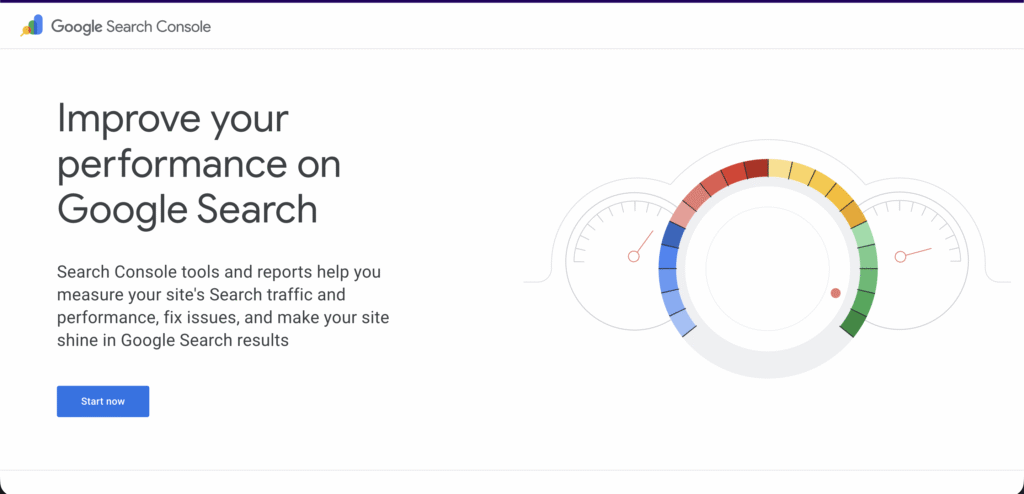
Google Search Console is the foundation of every free SEO analysis. It shows how Google crawls, indexes, and ranks your pages. You can detect errors, fix indexing issues, monitor impressions and clicks, test mobile usability, and review keyword performance. GSC is the most essential tool for tracking your website’s SEO health and understanding how search engines interpret your content.
How to Run a Quick On-Page SEO Check
Here’s a simple way to start:
- Choose a free website SEO analysis tool like Seobility or Rank Math.
- Enter your page URL.
- Review meta titles, descriptions, and header tags.
- Check keyword density — make sure it’s natural.
- Fix missing images alt text and internal links.
This quick check alone can boost your site’s on-page health score significantly.
How to Perform a Basic Technical SEO Scan
Running a technical SEO scan might sound complicated, but it’s not:
- Go to Google Search Console and check for crawl errors.
- Use GTMetrix or PageSpeed Insights to test page load time.
- Identify large files or unused scripts slowing down your site.
- Check your mobile performance score.
- Use Screaming Frog to find broken links or missing redirects.
Pro Tip: If you’re unsure what these metrics mean, you can always consult and contact us
Common Issues Found in SEO Scans
Most sites fail because of a few simple but major mistakes:
- Missing or duplicate meta tags
- Broken internal or external links
- Slow load speed due to large images
- Unoptimized mobile pages
- No structured data markup
Fixing even half of these can improve your SEO score analysis drastically.
How to Prioritize Fixes for Better Rankings
Not everything needs fixing at once. Focus on:
- Critical issues first: Broken links, missing tags, non indexed pages.
- Speed and mobile next: Google’s ranking factors now depend heavily on this.
- Content optimization: Improve titles, meta, and keyword placement.
- Backlinks and authority: Start linking from trusted sites.
Remember, consistent small improvements beat massive one time changes.
FAQ
1. What’s the difference between on-page and technical SEO?
On-page SEO focuses on what users see—your content, keywords, headings, and internal links. Technical SEO works behind the scenes to improve speed, mobile-friendliness, crawlability, and indexing. Both need to work together for strong rankings.
2. What is the best free SEO analysis tool?
Google Search Console and Seobility are two of the best free SEO tools out there. They’re accurate, beginner-friendly, and help you understand what’s stopping your website from ranking better.
3. How can I check my site’s technical health for free?
You can use Google PageSpeed Insights, GTMetrix, or Screaming Frog (free version) to check speed issues, broken links, large files, and crawl errors without paying anything.
4. Do I need both on-page and technical SEO to rank in 2025?
Yes. Search engines now look at content quality and how well your site performs. Even great content won’t rank if your site is slow, unoptimized, or hard to crawl for search engines.
5. How often should I run an SEO audit?
For most websites, running a quick SEO audit once a month is enough. If you publish regularly or run an online business, doing a full audit every 2–3 weeks helps catch issues early.
6. Are free SEO tools enough for beginners?
Absolutely. Free tools like GSC, Ahrefs Webmaster Tools, Seobility, and Ubersuggest give more than enough data for beginners to improve rankings without spending money.
7. Can these free tools help me find broken links?
Yes. Tools like Screaming Frog, Seobility, and SEO Minion can detect broken internal and external links across your site, which improves both user experience and SEO.
8. Will using multiple SEO tools affect my website?
No. SEO tools only scan your site—they don’t change anything. You can safely use multiple tools to compare results and get a clearer overall picture.
9. Why is website speed so important for SEO?
A slow site frustrates users and increases bounce rate. Search engines notice this and push slow pages lower in rankings. Fast pages lead to better user experience and stronger SEO performance.
10. I’m not a technical person. Can I still do an SEO audit?
Yes. Many tools like Website Grader, SEOptimer, and Ubersuggest show issues in simple language and give step-by-step suggestions. You don’t need coding skills to fix basic SEO problems.
Conclusion
Running a free SEO analysis of your website isn’t just for professionals — it’s for anyone serious about ranking better.
Once you’ve used these SEO scanning tools and got your report, take action. Optimize what’s broken, speed up your pages, and improve your content.
If you’re short on time or want expert help, you can contacts us, our SEO services stars at $799, our team can fix, optimize, and maintain your website’s health for lasting growth.
Explore our Marketing blogs to take your online presence to the next level.


